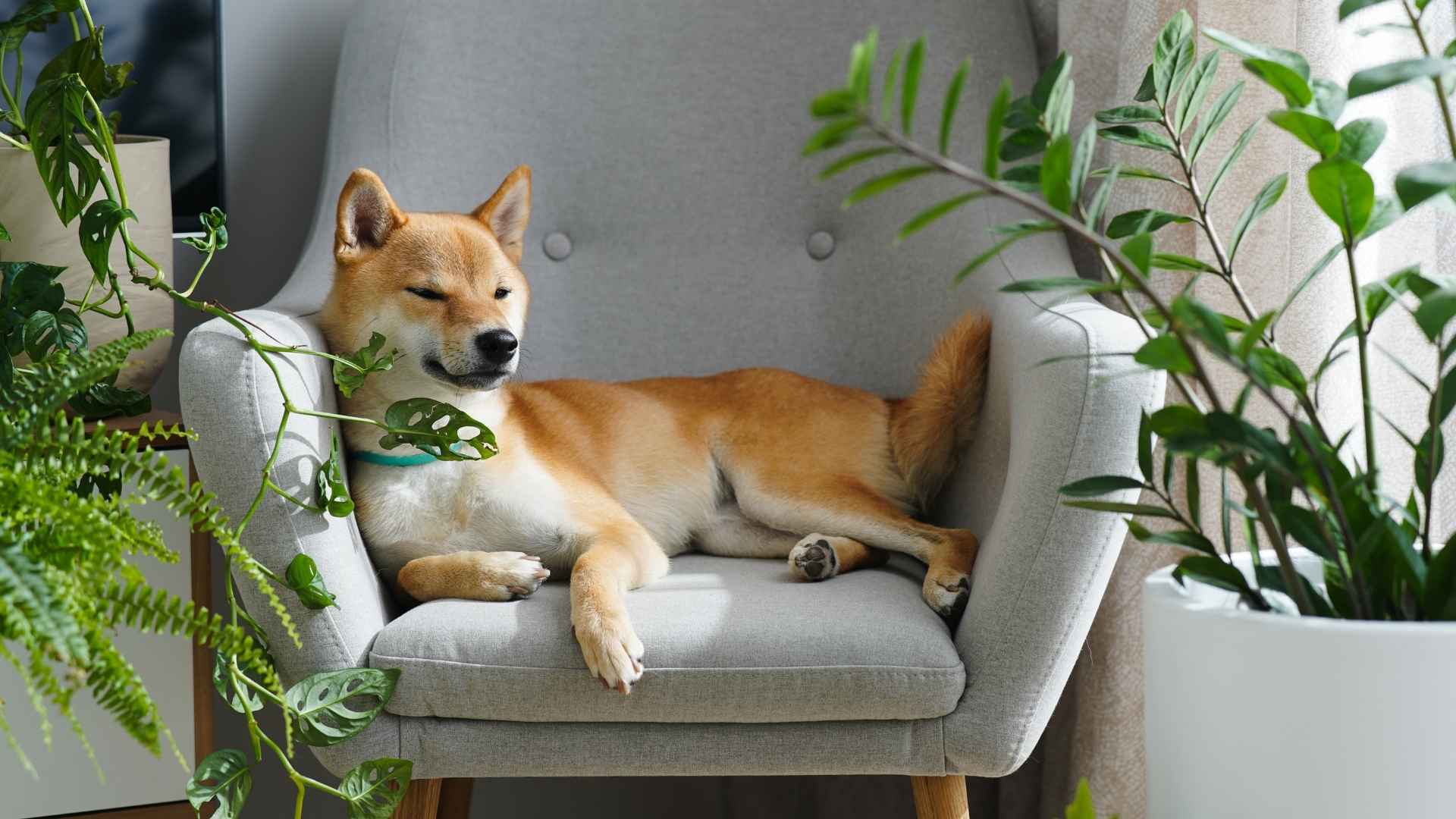What happens when life requires you to be gone for most of the day, but you still want the companionship of a dog? Many assume the two cannot go together, yet that is not always the case.
While some breeds are prone to separation anxiety, others adapt naturally to periods of solitude. They wait quietly, conserve their energy, and remain content until you return. The difference lies in temperament, history, and instincts.
Owning a dog while managing a full-time schedule is not about luck. It is about choosing wisely. For people who balance long commutes, office hours, or daily responsibilities outside the home, certain breeds are known to handle this lifestyle with grace.
In this guide, we’ll introduce you to those dogs and explain why they thrive even when left alone for much of the day.
Great Dog Breeds When You’re Away All Day
1. Basset Hound

Basset Hounds are known for their easygoing lifestyle, which makes them well-suited for households where people are gone for long hours. They are content to spend most of the day napping, with little anxiety about being left on their own.
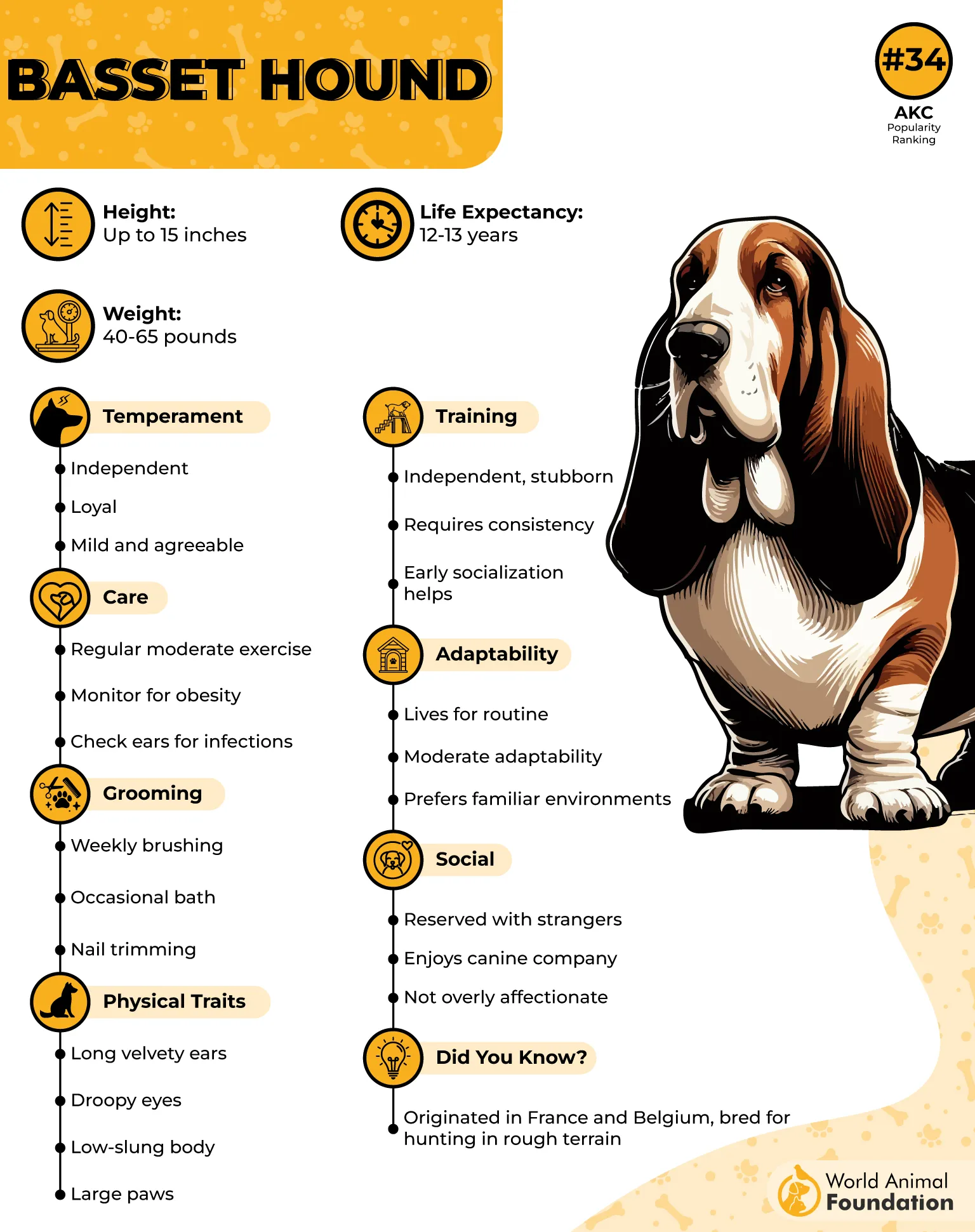
Patience Over Separation Stress
These dogs rarely get restless when their owners are away, provided they have food, water, and a comfortable spot to lounge. Their independent streak is actually a strength here, since they don’t constantly seek direction or reassurance.
Quiet Companions
While they may bark at unusual sounds, they generally spend their alone time in silence. Many owners return home to find them stretching after hours of rest, showing no sign of stress. Their low-energy approach makes them a peaceful fit for daily routines.
Gentle Family Presence
When the day winds down, a Basset Hound enjoys curling beside its people, happy to trade solitude for affection. They may be independent while you’re away, but they show steady loyalty when the family is together.
2. Greyhound
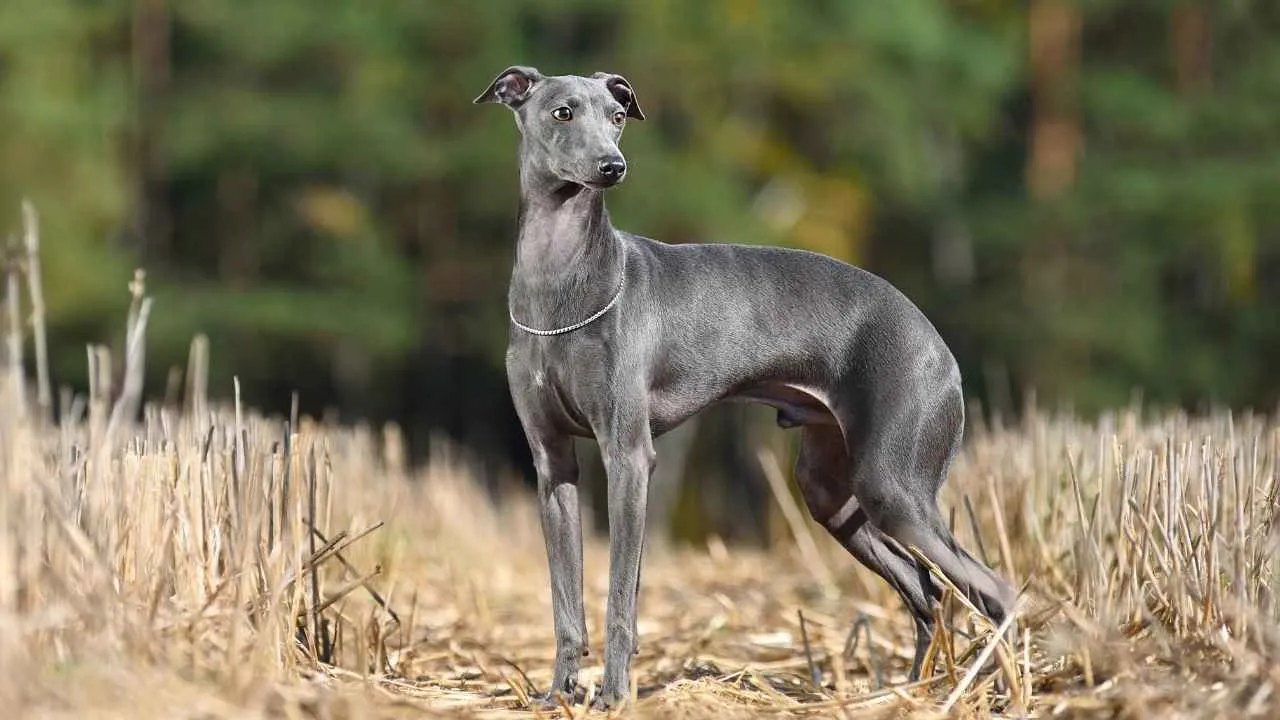
Greyhounds are famous for short bursts of speed, but away from the track, they spend much of their time resting. Their calm nature makes them comfortable with long, quiet stretches when the house is empty. They often choose a favorite couch or soft spot to nap through the afternoon.
Note: Many Greyhounds enjoy curling up in small, enclosed spaces indoors, despite their size — a trait that often surprises first-time owners.
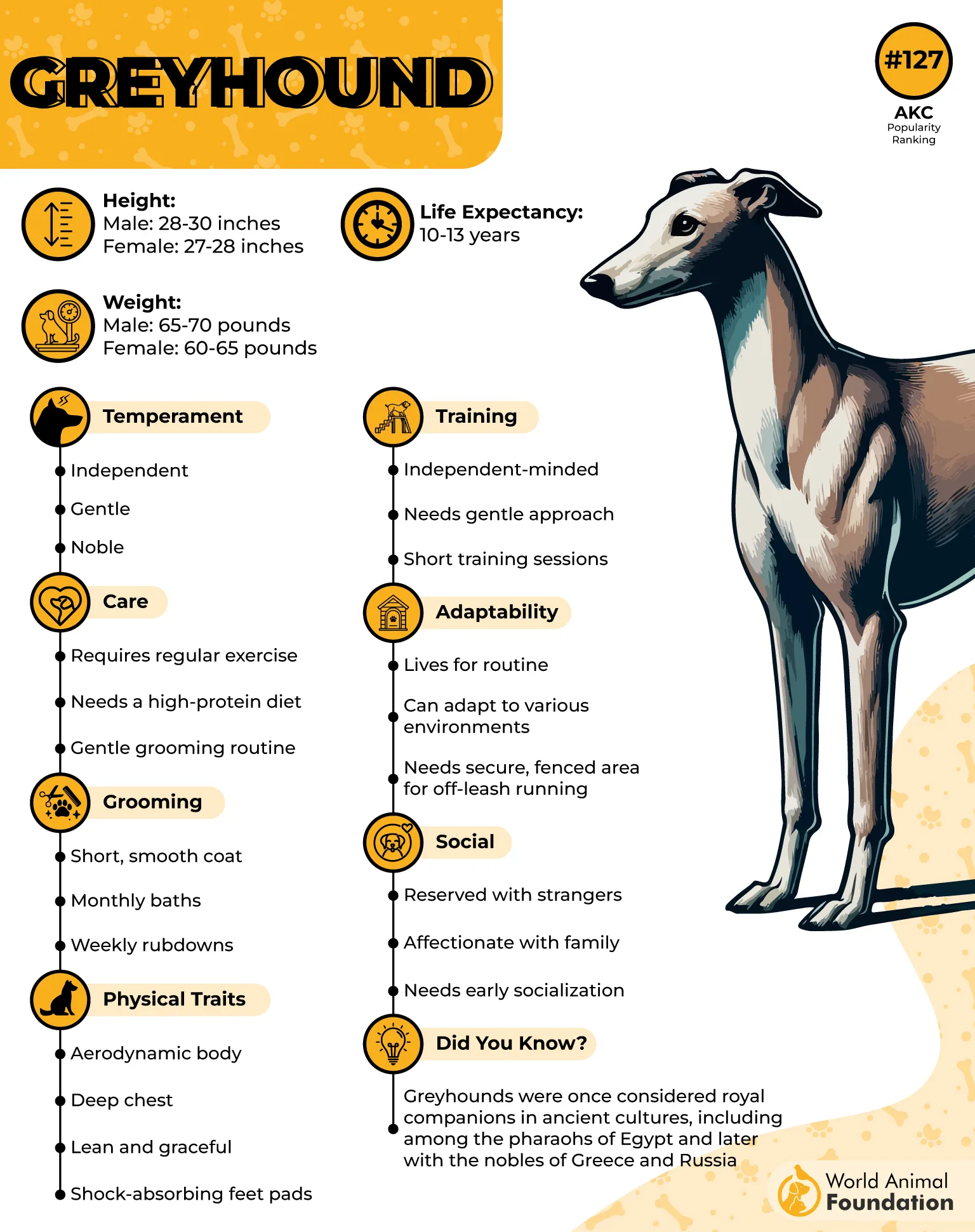
Easy Exercise Routine
Because of their sprinting style, Greyhounds don’t need hours of activity to stay satisfied, as per PetMD. A brisk walk in the morning and a quick run in the evening can cover their needs. This balance makes them one of the more adaptable breeds for people with busy work schedules.
Low-Demand Companions
They enjoy human company but tolerate solitude better than many other active dogs. Their independent streak allows them to wait patiently until someone returns home. When reunited, they show affection without overwhelming energy or anxiety.
Quiet and Gentle Indoors
Greyhounds are rarely excessive barkers and tend to keep calm inside the home. Their low-maintenance grooming adds another layer of convenience for working families. This combination of traits makes them a peaceful presence during downtime after work.
3. Chow Chow
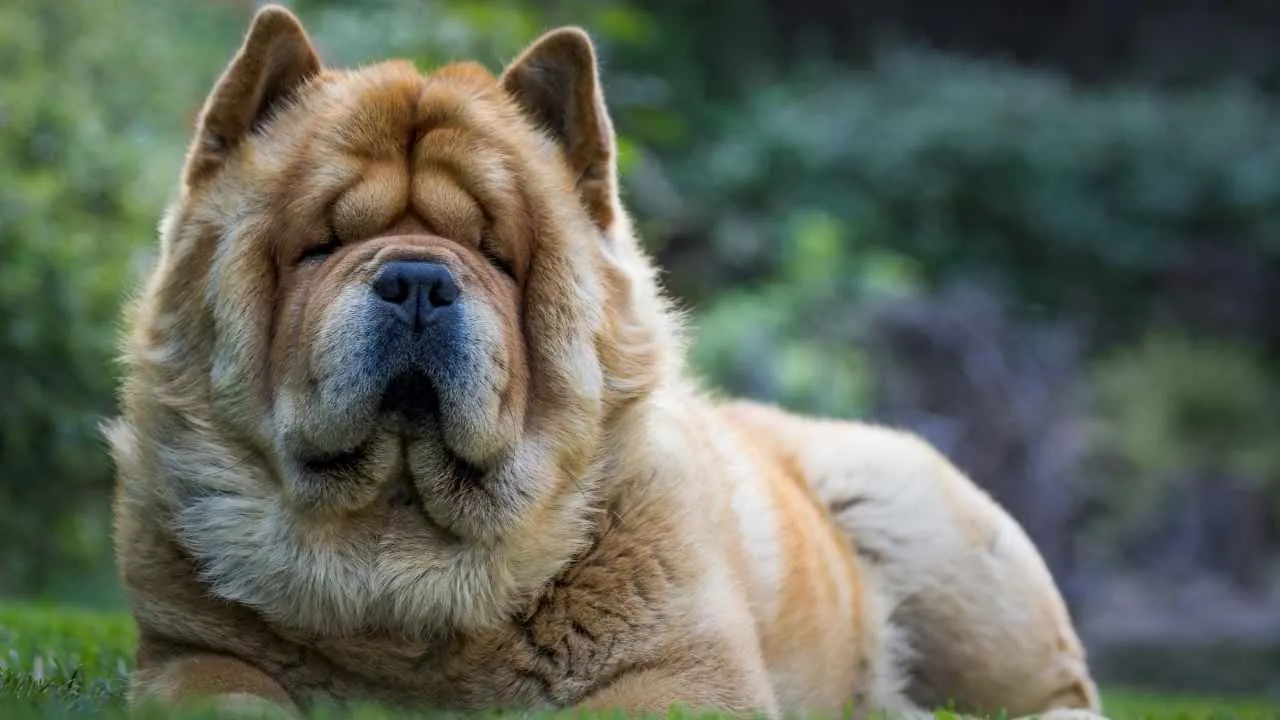
Chow Chows are naturally strong-willed and observant, which makes them excellent at staying calm when left alone for hours. They remain alert indoors, watching over their surroundings with quiet determination rather than constant movement.
Fun Fact: The Chow Chow is one of the few breeds with a blue-black tongue, a distinct trait shared with only a couple of other dog breeds worldwide.
Reserved Yet Protective
As per WebMD, this breed is known for being suspicious of strangers, often standing its ground when confronted. They have the confidence to discourage unwanted visitors without constant human guidance. Their protective nature works well in homes that need a dignified watchdog.
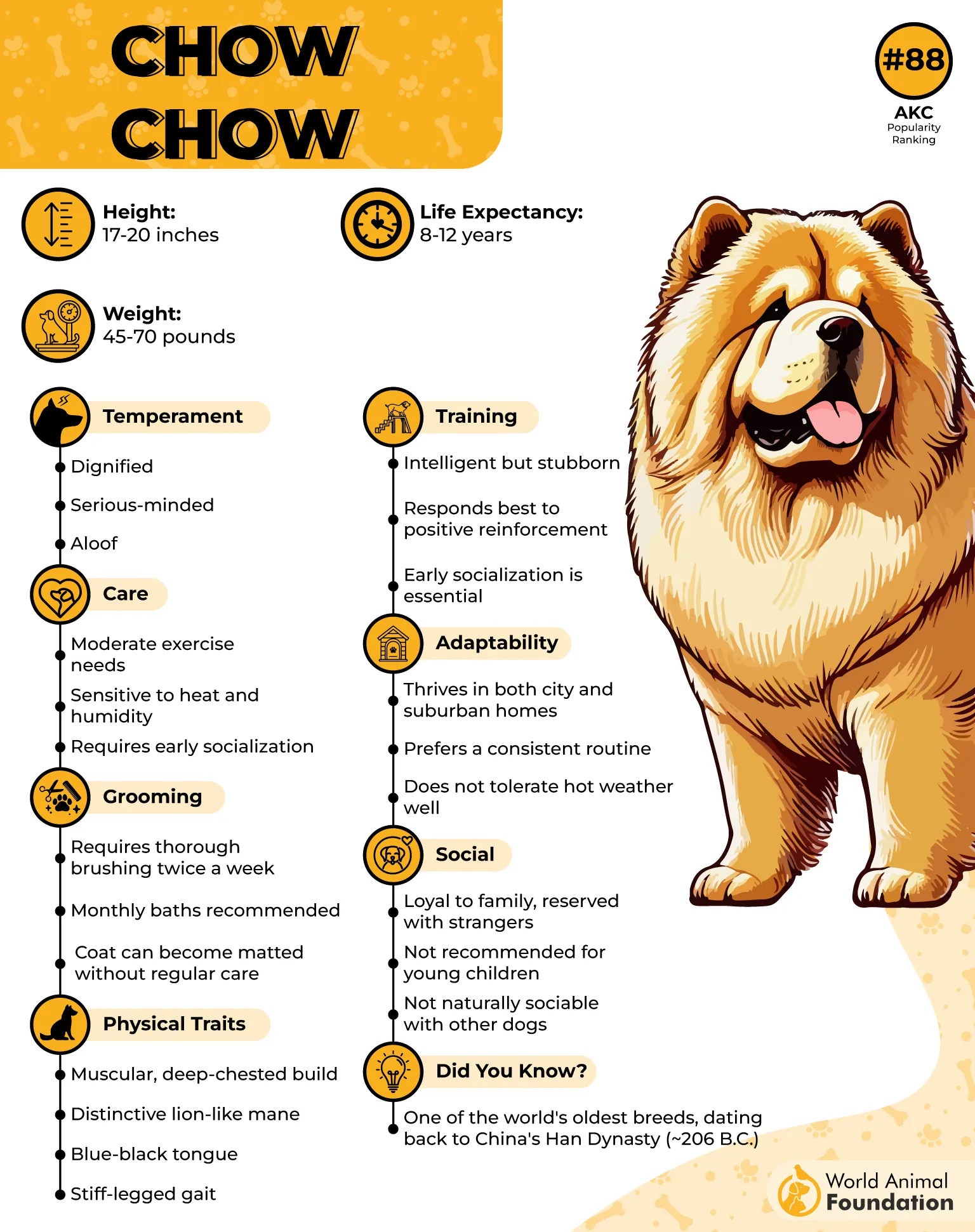
Low-Demand Companionship
Chow Chows prefer structure to endless affection, which means they do not crave constant attention throughout the day. They are content to maintain their space while waiting for their family’s return. Their lion-like composure adds to their self-sufficiency.
Chow Chows are typically not recommended for households with small children, as they are not naturally tolerant of rough play or physical affection.
Balanced Routine Needs
While they adapt well to time alone, they still require regular outdoor activity to stay content. Owners should prioritize quality walks before and after work. This balance helps the breed remain healthy while reinforcing its disciplined temperament.
4. Bullmastiff
Bullmastiffs are often described as gentle giants who prefer a quiet household rhythm. Their relaxed nature means they are comfortable spending long stretches alone without showing stress. A few sturdy toys can keep them occupied until their family returns.
Low Energy Demands
Even with their impressive size, these dogs do not require endless physical stimulation. A single daily walk usually satisfies them, allowing them to spend much of the day resting. This balance makes them ideal for busy owners with limited daytime availability.
Note: Some Bullmastiffs are more sedentary than others, but all share a tendency to nap throughout the day. Owners should know that this restful routine is normal and not a sign of laziness.
Built-In Security
Their presence alone deters unwanted visitors, as they were originally bred as guard dogs. Though calm indoors, they remain alert to changes in their environment. This instinct provides an extra layer of reassurance when the home is unattended.
Family Bonding Time
When their people are home, Bullmastiffs are affectionate companions who thrive on attention. They enjoy lounging beside family members as much as they enjoy outdoor time. The contrast between their quiet independence and deep loyalty makes them stand out as family protectors.
5. Basenji
The Basenji has a reputation for being self-reliant, which makes it easier to leave them at home during the workday. They keep themselves occupied with toys or simply resting in a sunny spot. Their calmness indoors balances out their lively energy outdoors.
Energy Release After Hours
While they can handle hours alone, this breed expects activity once you return. The American Kennel Club notes that they need outlets to burn off energy. Evening walks, yard play, or short trips to the dog park keep them satisfied and prevent restlessness.
Quiet Living
Nicknamed the “barkless dog,” the Basenji communicates through yodel-like sounds and expressive body language. Their quiet nature makes them suitable for apartments or shared housing. Neighbors won’t be disturbed by constant barking when you’re away.
Adaptability in Routine
These dogs thrive when they know the household schedule, as predictability helps them settle into solo hours. Owners can make the separation smoother by:
Leaving puzzles or chew toys for mental engagement
Creating a safe, cozy resting spot in the home
Keeping return times fairly consistent
6. Shiba Inu
Shiba Inu are naturally self-reliant, making them well-suited for homes where owners work long hours. They can structure their day around short bursts of activity and long rest periods without showing stress. This rhythm helps them remain balanced when left alone.
Mental Stimulation Matters
They enjoy having tasks that keep their mind engaged while the family is out. Interactive puzzle feeders or treat-dispensing toys can occupy them for hours. Without such outlets, their curiosity may push them to explore in ways that owners won’t always appreciate.
Rotating toys weekly keeps them interested.
Safe window access satisfies their alert instincts.
Chew-friendly items help them manage alone time.
Alert and Observant
Even when resting, Shiba Inu stay aware of their surroundings. They often position themselves near windows or doors to track activity outside. This observant behavior can give owners peace of mind, as the dog rarely misses unusual movement or sound.
Adaptability at Home
These well-muscled, bold little dogs can adjust to apartments as easily as suburban homes. Their adaptability makes them easier to manage for people with busy schedules. Once reunited with family, they show confidence and charm that have boosted their popularity in the West.
7. Boston Terrier
Boston Terriers carry an easygoing vibe that makes them adaptable to households with varying schedules. Their calm nature allows them to remain settled during the day without showing signs of restlessness.
Independence in Daily Routine
They’re capable of keeping themselves entertained when left alone, provided they have access to simple resources. Food, water, and safe chew toys go a long way in keeping them occupied. Owners often note that their downtime habits feel more like self-chosen naps than boredom.
Owner’s Tip: Leave puzzle feeders or rotating toys to stimulate curiosity. These small touches can prevent repetitive habits while you’re gone.
Low Tendency for Anxiety
This breed is one of the exceptions within the terrier family, as separation anxiety rarely develops. That independence has made them a favorite for city dwellers with demanding work hours. A steady routine helps reinforce their comfort with alone time.
Compact Energy Levels
Boston Terriers enjoy bursts of playful activity but do not demand constant engagement. Their balanced temperament makes them a suitable option for individuals who spend long hours away. Even in small living spaces, they can thrive without excessive supervision.
Conclusion
Choosing the right dog for a busy lifestyle is not about compromise. It is about finding the best dog breeds that adjust to long stretches of quiet while still offering warmth when you return.
Many of these adult dogs are patient enough to manage on their own for a few hours, waiting calmly until the routine shifts back to family time. They become wonderful companions in the evening, when the focus turns from work to rest.
For human families, these breeds provide a balance of independence and loyalty that makes daily life more manageable.


